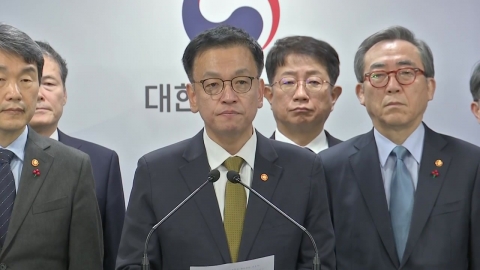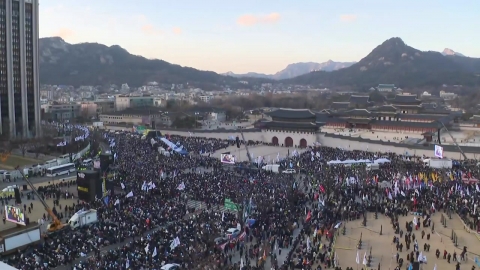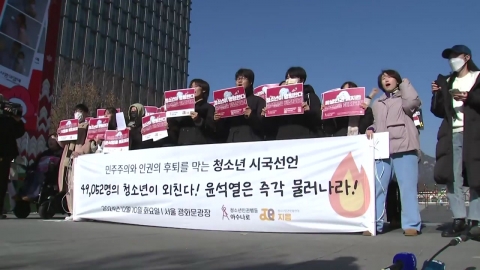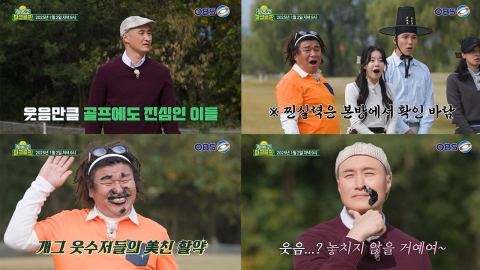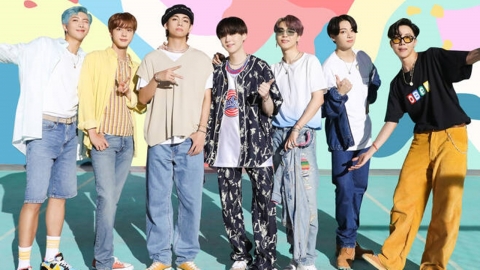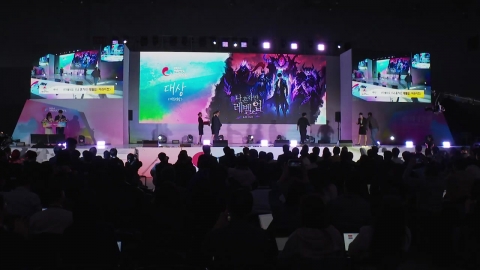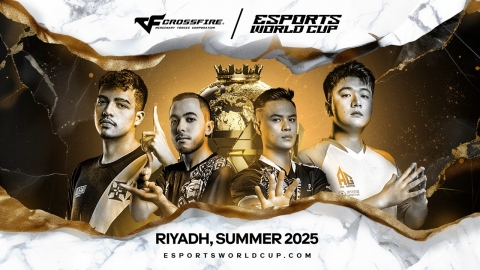■ Starring: Lee Ho-ryeong, senior researcher at the Korea Institute of Defense Studies
* The text below may differ from the actual broadcast content, so please check the broadcast for more accurate information. Please specify [YTN 24] when quoting.
[Anchor]
It is time for <Korean Peninsula Review> to analyze North Korean issues and diplomatic security news on the Korean Peninsula in depth. We will be with Lee Ho-ryeong, a senior researcher at the Korea Defense Research Institute. Today, we will have a time to organize inter-Korean relations this year. First of all, what was the most noticeable part of North Korea's foreign policy this year?
As you just said, it can be seen as the point where it has developed a new relationship between North Korea and Russia. Foreign Minister Choi Sun-hee will visit Russia from January this year, and Putin will visit North Korea in June. Then a new comprehensive strategic partnership agreement was signed between North Korea and Russia, but if you look here, a provision for military support was added, creating an opportunity for a new relationship with a much more comprehensive and specific treaty than the treaty signed between the two sides in 1961. Since then, as you all know, we have been sending troops to Russia since November.
[Anchor]
What about inter-Korean relations? There were inter-Korean blocking measures and unification deletion, so what was the background of this policy?
I think I can think about three things while looking at it. First of all, North Korea has continued to emphasize economic achievements this year, but the top priority North Korea has always had was strengthening its nuclear and missile capabilities. In order to give legitimacy to this, a part that continues to strengthen hostility is necessary. So the first condition emphasized hostile inter-Korean relations and two-state relations. And the second is, as I said earlier, demonizing imperialism and strengthening ideological education for young people here, don't you think?
You can see this as the second point. Then, what kind of external information and dramas that young people in North Korea like are all from? Major Korean broadcasts, dramas, and K-pop went in and violated the ideas of young people in North Korea. Therefore, Kim Jong-un may have thought that he had no choice but to emphasize the hostile two-state theory.
There was a story that the third thing to think about was the unification deletion. Then, is Kim Jong-un's unification deletion an extension of the unification deletion of the Goryeo federal system? Not necessarily, Kim Jong-un's removal of unification is the removal of such a peaceful and phased unification plan discussed between the two Koreas. As we talked about at a plenary session last year, it should be said that armed unification still survives, considering that the territorial part of the South Korean region should be integrated using nuclear force.
[Anchor]
At the same time, we are continuing to strengthen our own defense capabilities, so can we infer the unusual situation and next year's stance regarding our defense capabilities this year?
This year, North Korea has conducted a lot of missile tests before, especially this year, and in particular, the Hwasong-19 type is a solid fuel type, and the highest high-angle launch among the ICBMs that have been done so far has the ability of an ICBM with a very long range. And because it visualizes that it has a round shape in terms of warhead shape, so it can develop ICBMs that have multiple warheads rather than single warheads, next year will be the last five years of North Korea's 8th party congress. Then, in those five years, it is the year when North Korea completes the five-year defense development plan proposed at the 8th Party Congress, and it is the year when it completes the five-year new weapons development plan, and specifically, it is time to achieve the five strategic weapons that must be proactively achieved. Therefore, it is a part that has further advanced the capabilities of ICBMs that have not been properly shown so far in relation to that part. And if you look at it again this time, you said you would launch a military reconnaissance satellite three times, but didn't you only launch once?
But I failed. I think that's going to happen next year. Then, the part related to the 7th nuclear test continued to be talked about, but last year and this year, we didn't continue to conduct nuclear tests. At the same time, he emphasized the tactical core part, but I think we should pay attention to it next year.
[Anchor]
The tactical nuclear part continues to threaten to mount tactical nuclear weapons on ballistic missiles, but how complete do you think it is?
In the end, North Korea showed it on the outside. It shows Volcano-31 because it is a tactical nuclear weapon, and in the case of Volcano-31, it can be mounted on various missiles. So, KN-23, 24, 25, cruise missiles, arrows-1, and 2. We also showed off that they can be mounted there, but we need to pay attention to this part because it hasn't been verified yet whether it was actually mounted and fired.
[Anchor]
The strengthening of military cooperation between North Korea and Russia should also be pointed out. There was a prospect that North Korea would receive a large amount of military technology from Russia.Ma has yet to be revealed in substance. When will it be visible?
Since North Korea is even sending troops, it will receive a lot in return for the dispatch. Next, our biggest concern is whether we will not receive high-tech technologies, especially those related to WMD, but I don't think that possibility is high. And since North Korea's most vulnerable part is its air defense system, I think Russia can think of such an air defense system or naval cooperation with North Korea for the expansion of the Indo-Pacific region, not the western region, not the European region. Another is that the scope of such technology transfer that Russia gives to North Korea can also vary depending on when and how quickly the end of the war in Ukraine ends.
[Anchor]
The National Intelligence Service announced yesterday that a North Korean soldier sent to Russia was captured and killed by Ukrainian forces while wounded. There have been talks that we should send observers to Ukraine, but is this the situation that is being sent?
There was only a discussion that the observation team should be sent, but there was no talk that it was sent or not sent after that. When North Korea actually sent troops to Russia, we had a delegation once on the government level about how to cooperate with Ukraine on that issue. After going back, I understand that the observation team and in a way, the team should go to use military technology and evaluate North Korea's military power, but it stopped after discussion.
[Anchor]
If the observers go there, can we get more information than what we get from the foreign press or the White House?
If you go, the linguistic problem is the most obvious. If such an observer goes and actually asks about the amount of information that can be heard through various stories when North Korea is captured, and what part of it can be specifically asked to find out more, it would be much more advantageous for us than for the Ukrainian special forces.
[Anchor]
Ukrainian President Zelensky also said that executions are being carried out to prevent North Korean soldiers from surrendering. The White House also seemed to believe that the North Korean military is self-determining instead of surrendering out of fear of retaliation for their families in the North. Do you think it's highly likely?
It seems like there's enough. Because when we had armed North Korean operatives in the 70s, 80s, even the early 90s, if we captured them, they would kill themselves. It's a similar type.
[Anchor]
With military cooperation between North Korea and Russia strengthened, the U.S. will be launched by the second Trump administration. How are you forecasting the North Korea-U.S. dialogue as it is widely expected that it will be raised?
I don't think it's going to be as easy as I thought. As I mentioned earlier, I think that depending on how the United States and Russia talk and manage the situation, dialogue with the United States will not be affected as a sub-concept underneath it. And even in that situation, I think from North Korea's perspective, there is nothing much to gain from the U.S.-North Korea dialogue. In that respect, I think the US dialogue will not be as easy as you think.
[Anchor]
I'm expecting so many changes. Aren't we in the midst of impeachment? What are some of the best ways to protect the national interest in this situation?
Nevertheless, the resilience of Korea is very high. Consistency is very important when it comes to such matters as foreign affairs and security, and apart from this situation in the political situation, it is important for us to create an environment so that the other party can predict our diplomatic and security issues.
[Anchor]
I see. That's all for today. He was joined by Lee Ho-ryeong, a senior researcher at the National Defense Research Institute. Thank you.
※ 'Your report becomes news'
[Kakao Talk] YTN Search and Add Channel
[Phone] 02-398-8585
[Mail] social@ytn. co. kr
[Copyright holder (c) YTN Unauthorized reproduction, redistribution and use of AI data prohibited]
Politics
More- North Korea, Trump's 2nd-term opponent 'Strategy to Respond to the U.S. Hardest'
- [Breaking News] "Strategy to Respond to the U.S. Hardest" at a plenary session of North Korea and the Workers' Party.
- North Korea-Russia relations accelerate 'close'...New Year's troops are likely to be sent.
- "Special Act on Semiconductors" pushed back by impeachment...Delayed Support

